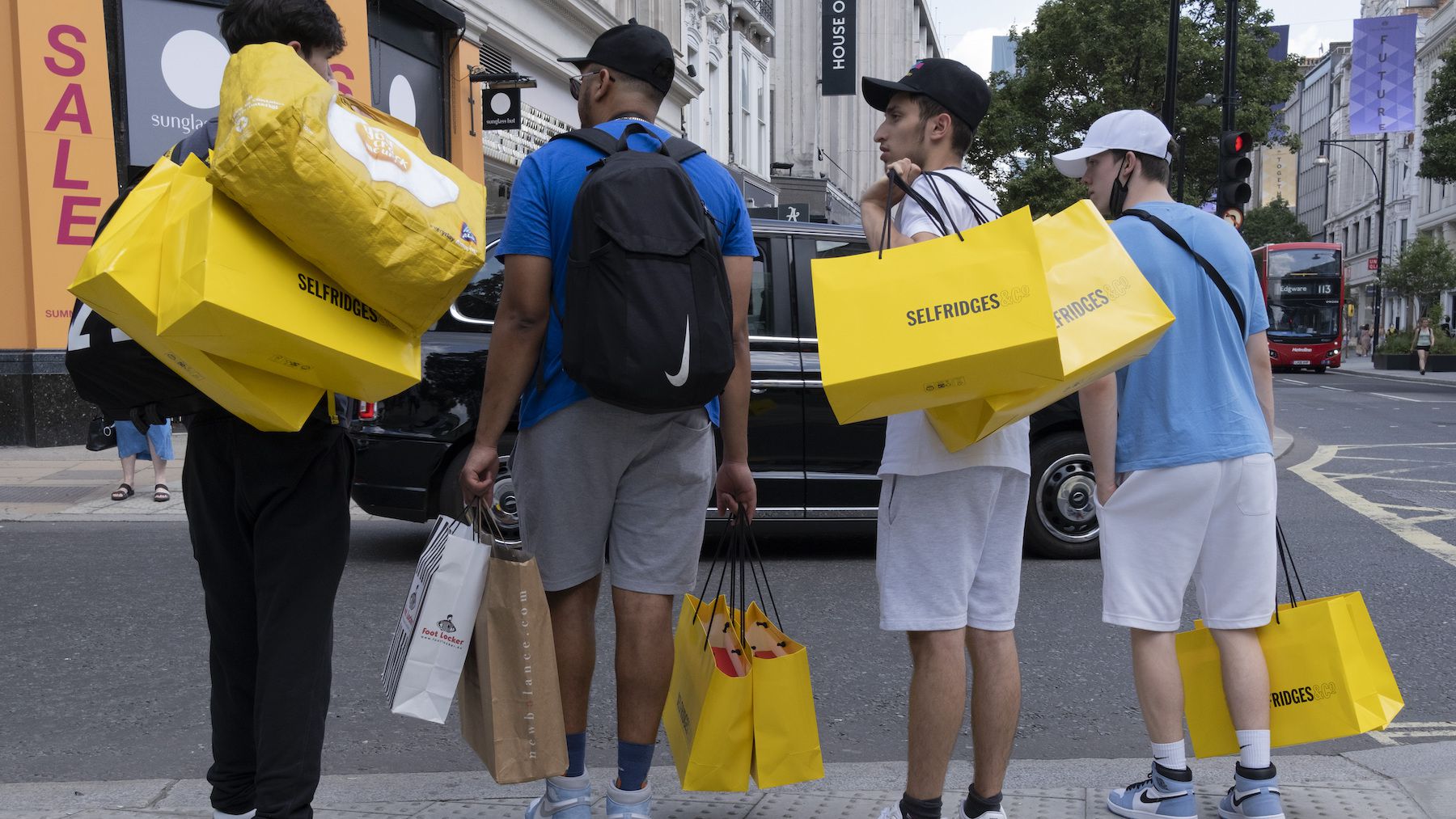
Fashion has an overconsumption problem and we all know it. It’s not just the horrifying images of clothes clogging Ghana’s beaches and Chile’s Atacama desert that tell us we buy too much stuff; it’s the packages dropping through the mailbox every week, the overactive Paypal accounts and the unworn pieces lying forgotten in the back of our closets. If we’re honest with ourselves, we know we buy too many clothes, that so many of the pieces we own don’t get worn as much as they deserve.
This volume is at the root of fashion’s terrible impact on the planet. Despite all the noise the industry makes around circularity, carbon neutrality and the rest of it, the uncomfortable truth is that we simply buy too much stuff. Fashion’s puny sustainability initiatives are so far incapable of offsetting the industry’s current environmental footprint, let alone one that’s projected to increase as consumers buy even more clothes in decades to come. The problem isn’t that we don’t buy enough organic cotton or recycled polyester, it’s that we treat clothes as if they’re disposable novelties, something to enjoy for a moment before moving on to the next trendy must-have or it-piece.
Buying less is the easiest way for consumers to reduce their impact on the planet, because it sidesteps all of the headaches and contradictions that come with trying to shop sustainably. For example, recycling sounds great, but it still has its tradeoffs — from the emissions generated by processing feedstock to the microfibres shed by recycled polyester. Rather than stockpiling so-called sustainable products — as if such a thing exists — it’s much more liberating to just buy great pieces, but to do it less often.
I’m not the only one exhausted with all the hype that’s endemic to fashion these days. There’s a growing movement of shoppers who know the market is clogged with poorly made, trendy novelties, and they’re thinking more critically about their spending habits. That explains the growing appetite for brands like Bode, Noah and Story MFG, who lean toward a slower approach to fashion with pieces designed to be lifelong investments. The same goes for the likes of Our Legacy, GmbH and Eckhaus Latta, who are quietly making the case for relatable yet interesting clothing. There’s no hype here, just great pieces for people with great taste. That’s partly why vintage is so appealing right now, too — it’s a much less impactful way of shopping, for sure, but it’s also an easy way of removing yourself from the relentless churn of the mainstream.
But buying less is hard. We live in consumerist societies, where fashion hacks our psychology to make us believe that spending money non-stop is an essential part of modern life. It’s not really about selling clothes, it’s about selling dreams, status, belonging and novelty. When we see such essential parts of the human experience in shopping, it’s no wonder we do it so much.
If we want to shop more intentionally, we need to understand what fashion can give us, and what it can’t. We need to come to terms with the fact that once the initial high wears off, buying non-stop doesn’t actually bring anything meaningful into our lives — what it does do is eat up our time, money, energy, and the planet we live on.
A healthier way of looking at fashion is this: it’s about collecting, wearing and caring for well-made, beautiful garments that make us feel great whenever we pull them out of the closet. It’s not about keeping up with whatever’s hot online, it’s about buying things you love and wearing them to death. All the world’s best-dressed people have figured this out already — just ask Nick Cave, Michèle Lamy or Fran Lebowitz if they’re tempted by a flash sale.
Buying less is also a political act — greenwashing is about making shopping seem less harmful than it really is, so Big Fashion can keep the numbers up and the investors happy. Cultivating more mindful shopping habits is better for our own lives, but it also sends a powerful middle finger to a greedy, polluting industry, one that trashes the planet, takes our money, destroys our self esteem and gives us little more than some brief hits of dopamine in return.
Alec Leach is an author and strategist. His debut book, The World Is On Fire But We’re Still Buying Shoes, is out now via alecleach.com.
The views expressed in Op-Ed pieces are those of the author and do not necessarily reflect the views of The Business of Fashion.
How to submit an Op-Ed: The Business of Fashion accepts opinion articles on a wide range of topics. The suggested length is 700-1000 words, but submissions of any length within reason will be considered. All submissions must be original and exclusive to BoF. Submissions may be sent to [email protected]. Please include ‘Op-Ed’ in the subject line and be sure to substantiate all assertions. Given the volume of submissions we receive, we regret that we are unable to respond in the event that an article is not selected for publication.
Stay connected with us on social media platform for instant update click here to join our Twitter, & Facebook
We are now on Telegram. Click here to join our channel (@TechiUpdate) and stay updated with the latest Technology headlines.
For all the latest Fashion News Click Here
